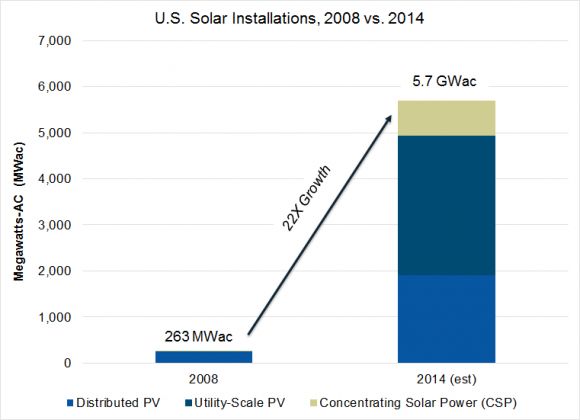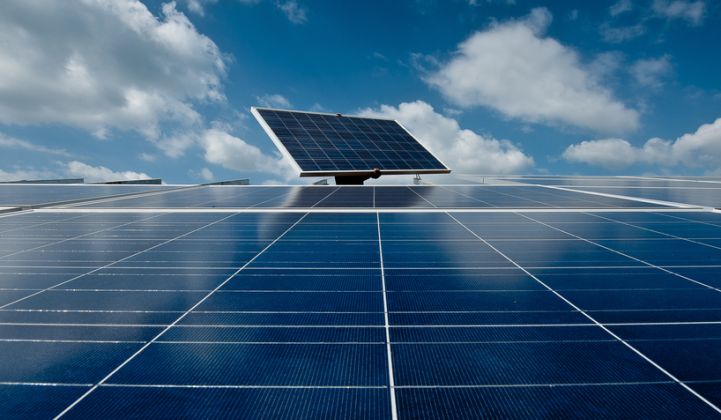Since the 2008 mortgage crisis and Great Recession, two industries have fared better than most others: finance and energy.
Although most people are delighted to see their stock portfolios and retirement funds doing well, very few are extolling the good fortunes of the investment banks that caused the mess. However, the surge in domestic energy production -- both fossil fuels and renewable electricity -- is something nearly everyone can celebrate.
In terms of new investment activity and job creation, the solar industry has posted some of the best numbers in recent years. In 2014, new domestic solar jobs were added at a pace twenty times faster than the broader economy, bringing total jobs to 173,807. And a new solar installation is now being completed every two and a half minutes in the U.S., up from one every two hours a decade before.
New figures show how steadily the industry has grown since 2008, even as many other domestic industries struggled to recover from the recession.
According to preliminary numbers from Shayle Kann of GTM Research, America installed twenty-two times more solar in 2014 than in 2008. That includes both photovoltaics and concentrating solar power, tracked in AC terms.

Source: GTM Research
In 2008, the U.S. installed 263 megawatts (AC) of solar PV and CSP. In 2014, based on GTM Research's conservative estimates, the U.S. installed at least 5.7 gigawatts (AC). The PV figures were discounted into AC from DC in order to make an accurate comparison and include concentrating solar.
More than 80,000 new jobs have been created in the industry since then. Today, one company, SolarCity, is booking almost as much solar capacity in one quarter as the entire industry put on-line in all of 2008.
U.S. solar companies could face problems in 2017 after the phase-down of the federal Investment Tax Credit, mirroring the current turmoil in oil and gas. Some believe the industry will survive and even prevail without the tax credit; others believe it will cause a steep drop in installations and force the industry to shed tens of thousands of jobs.



